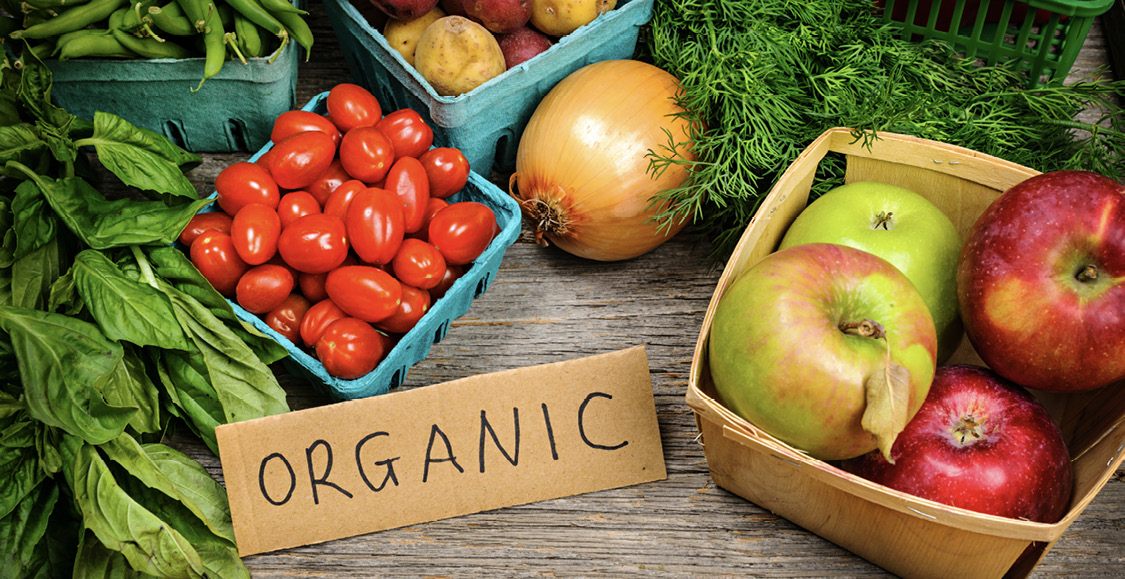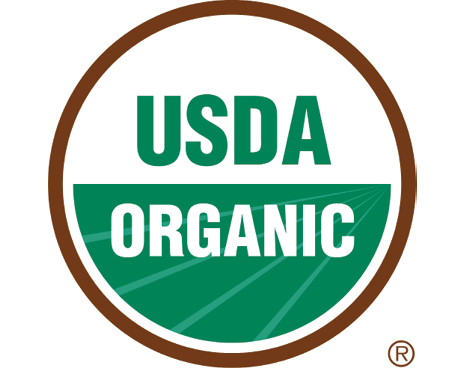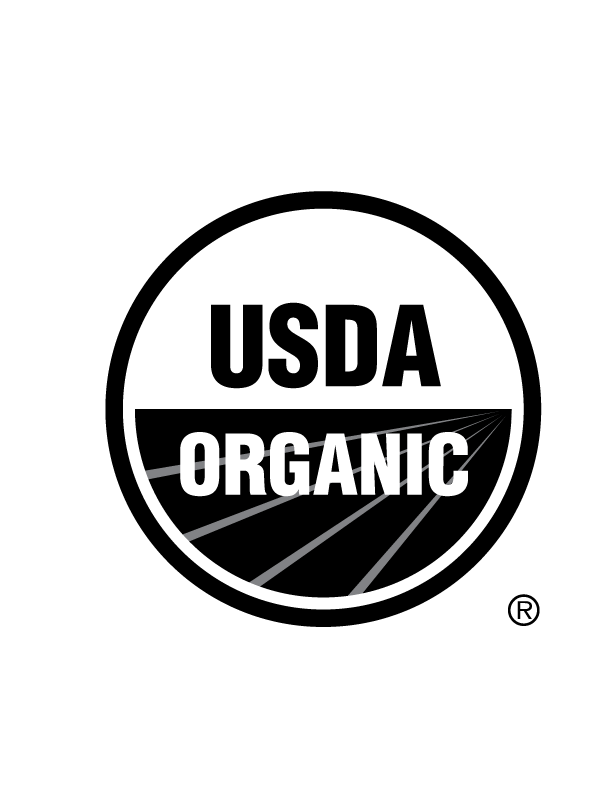Becoming a Certified Organic Grower in Mississippi
Interest in organic fruits and vegetables is steadily growing in Mississippi. Some commercial growers are trying organic methods on a small scale before requesting certification to help decide if this route is best for their businesses. This publication provides commercial fruit and vegetable growers with information on the process of obtaining organic certification in Mississippi.

Getting Started
What does the term “organic” mean?
The United States Department of Agriculture (USDA) National Organic Program (NOP) defines organic as “a label that indicates that a food or agricultural product has been produced according to the USDA organic standards.” These standards “require operations to use practices that cycle resources, conserve biodiversity, and preserve ecological balance.” Synthetic fertilizers, raw manure, sewage sludge, biosolids, most pesticides, irradiation, and genetic engineering (i.e., genetic modification) may not be used.
What is organic certification?
Organic certification verifies that your farm complies with USDA organic regulations and allows you to sell, label, and represent your products as organic. These regulations describe the specific standards required for using the word “organic” or the USDA organic seal on food, feed, or fiber products. The NOP administers these regulations. Your farm would be certified by a certifying agency. These certifying agents are accredited by the USDA and are located throughout the U.S. and worldwide. Certifying agents ensure that USDA organic products meet or exceed all organic standards. Certification provides the consumer, whether end user or intermediate processor, assurance of an organic product’s integrity.
What are the benefits of being a certified organic grower?
Being certified allows the grower to use the USDA organic label on products, in advertising, and for promotion. This label can give the grower a significant advantage in the marketplace by attracting consumers who want to buy organic produce. The term “organic” indicates that the produce has met NOP’s high standards. People looking for organic produce may be willing to pay a higher price over conventionally grown produce.


Deciding Whether to Get Certified
What if I only want to certify part of my farm?
You can certify part of your farm as organic. The certified areas must be managed according to organic standards and noted on your organic system plan (OSP). You should also talk with a certifier and ensure you have a proper “buffer” area between your organic and non-organic areas to meet certified organic requirements.
Will the Mississippi Department of Agriculture and Commerce (MDAC) certify my farm as organic?
No, MDAC is not a certifying agency. There are currently no certifying agents in the state of Mississippi.
Applying for Certification
What is the first requirement to become a certified organic grower?
You must end the use of synthetic materials at least 36 months before applying for organic certification. If you have used any chemicals on your crops within the past 3 years, you should document the date of the last application and make note of what chemicals you used. Wait until 3 years have passed since that date before applying for certification.
How do I get certified?
To become certified, you must contact a certifying agent and follow application procedures. These involve filling out an application, undergoing an on-site inspection, providing proof of field history, and receiving a review of all your field inputs.
Who are the private certifiers?
There are private certifiers across the U.S. Some will work with organic growers only in their region, while others will work anywhere in the country or other countries. The USDA website features a list of USDA-accredited certifiers. Nearly 80 domestic, accredited agencies are listed. While none are in Mississippi, many will come to Mississippi farms for certification, albeit for a fee. For more information, contact the USDA Fresh Fruit and Vegetable Program.
How long does it take to become a certified organic grower?
Once you apply, a certifying agency will review the written application and conduct an on-site inspection. This usually takes 6 months but can vary depending on the certifying agency, growing season, and application timing.
How much does it cost to become certified?
Private certifiers set their own fees, based on their own criteria. Rates are based on the size of the organic fields, what crops you want to grow, travel expenses for the certifier, and other expenses. Note that reinspection is required each year.
Maintaining an Organic Crop
Do the seeds I buy need to be organically grown?
You should make every effort to find organically certified seeds for each crop. If they are unavailable, document at least three attempts to purchase commercially available organic seeds. You can use conventional, untreated, and non-genetically modified (non-GMO) seeds if organic seeds are unavailable. Ask your certifier to approve the seeds before planting. Secure proof that the seeds are untreated and non-GMO at the time of purchase.
What about transplants?
Transplants must be grown organically by the grower or purchased from a certified organic nursery. You can use untreated, conventionally grown transplants if you can document at least three attempts to locate organic transplants. Get approval from your certifier before buying this type of transplant. Secure proof that the transplants are untreated and non-GMO at the time of purchase.
What kinds of organic fertilizers and pest management can I use?
The best place to check each product is on the Organic Materials Research Institute (OMRI) website. Remember that a product label that says “organic” may not actually be on the NOP list of approved substances. Only substances on the NOP list can legally be used on a certified organic farm. All products on OMRI’s website are approved; a statement on the label will indicate OMRI approval. You are responsible for ensuring the product is OMRI-approved or on the list of approved substances on the USDA’s NOP website before using it.
Finding More Information
How can I find the exact rules and regulations of organic certification?
All national rules are published by the USDA and posted online.
Where can I find more information on organic production?
USDA organic program news for organic farmers
The Organic Vegetable IPM Toolkit
Appropriate Technology Transfer for Rural Areas (ATTRA) Sustainable Agriculture
Are there programs that provide additional resources on becoming a certified organic grower?
Yes, the USDA Agricultural Marketing Service Transition to Organic Partnership Program (TOPP) offers a mentorship program. In this program, a participant is partnered with an experienced organic producer mentor to help them set goals, navigate the transition and certification process, and receive support when writing their organic system plan. This program also provides access to in-person and virtual learning opportunities such as field days, workshops, webinars, and conferences. This program can be offered in a one-on-one or small-group format.
Additional Resources
Organic Training and Transition Assistance
NOP Handbook: Guidance & Instructions for Accredited Certifying Agents & Certified Operations
Publication 4003 (POD-05-24)
By Christine E. H. Coker, PhD, Extension/Research Professor, Coastal Research and Extension Center, Brenton Breland, Extension Agent I, Pike County, Haley Williams, Research Associate I, Coastal Research and Extension Center, and Jenny Ryals, Research Associate II, Coastal Research and Extension Center.
The Mississippi State University Extension Service is working to ensure all web content is accessible to all users. If you need assistance accessing any of our content, please email the webteam or call 662-325-2262.


